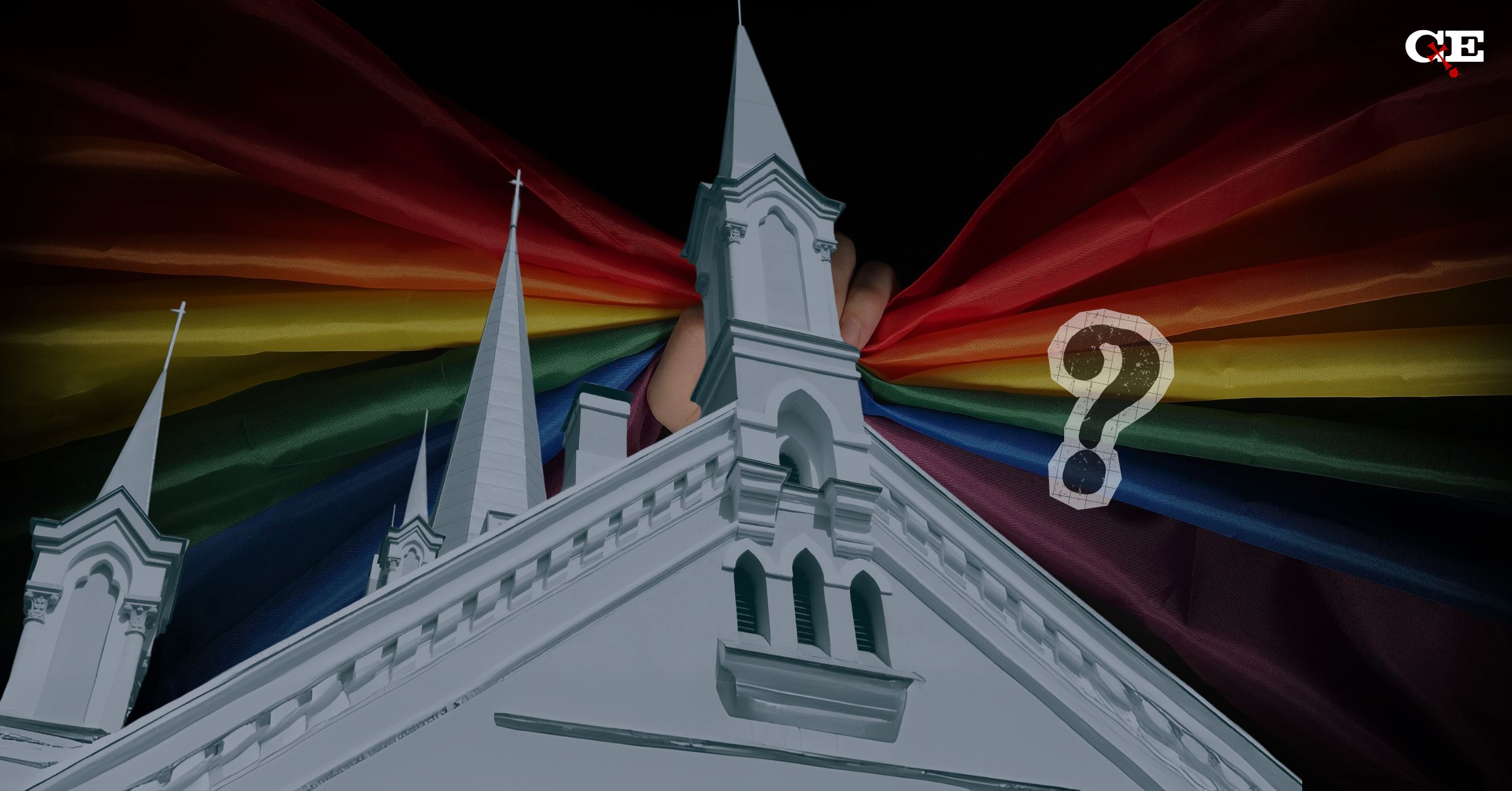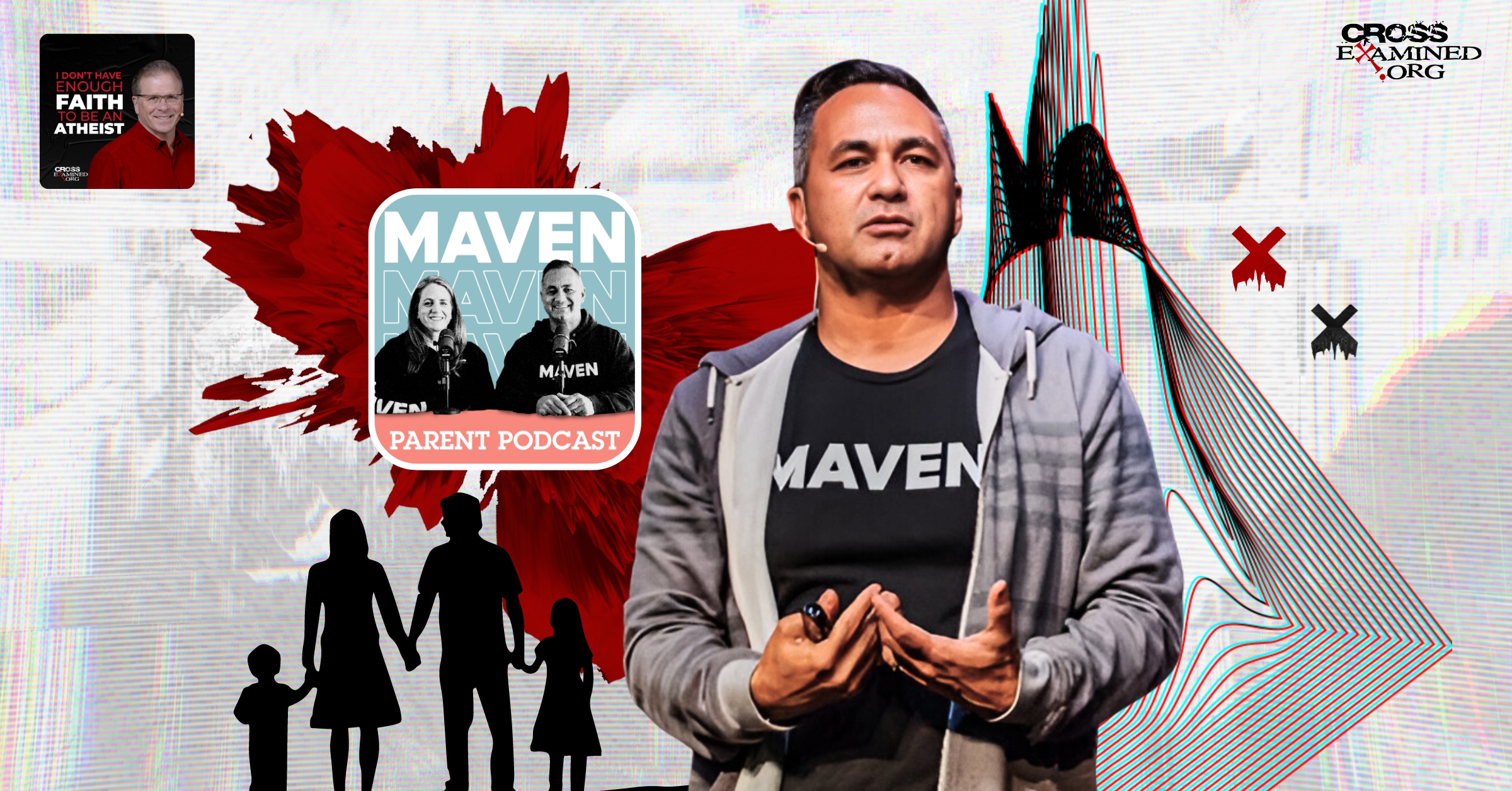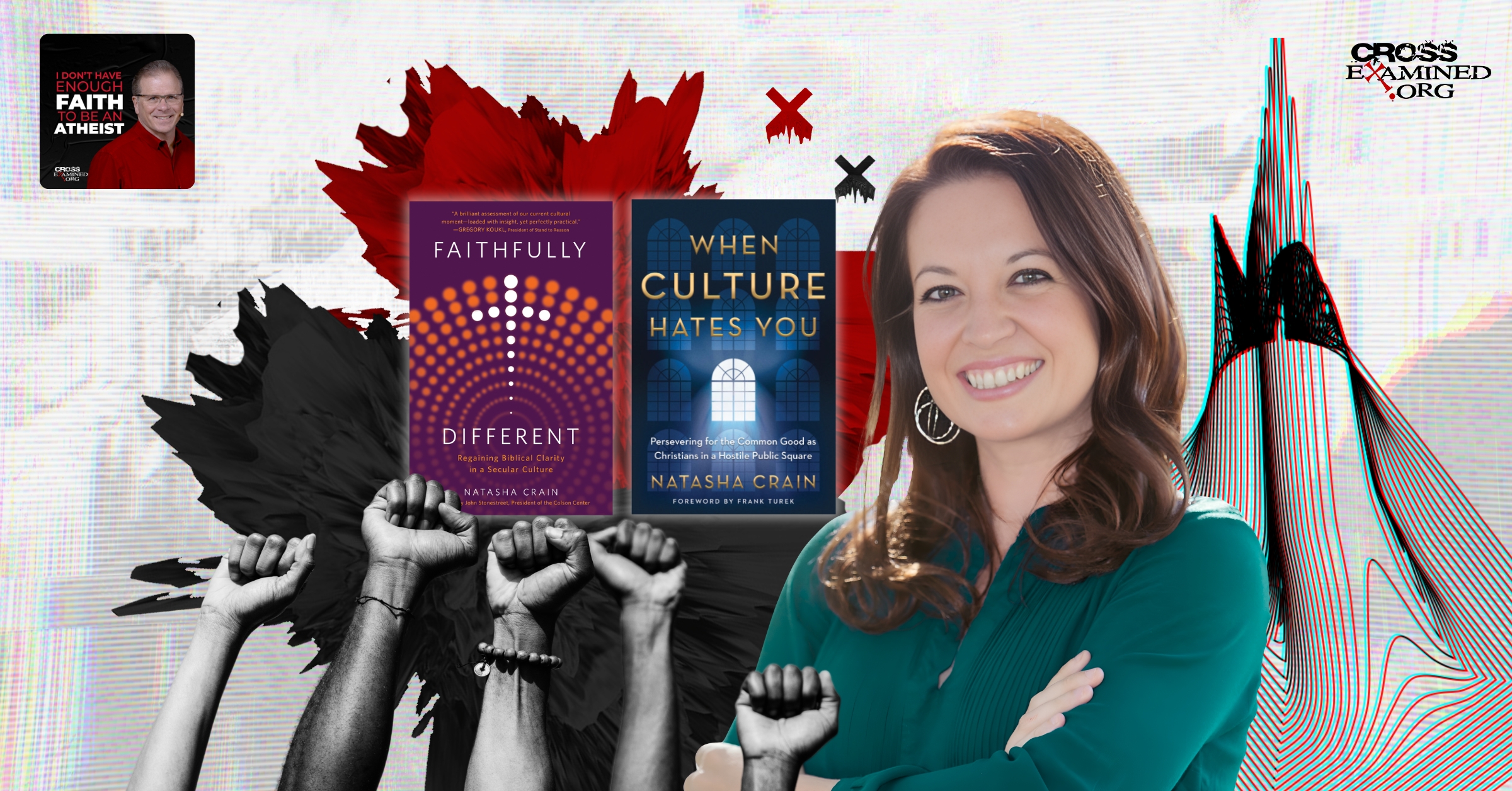The New Cultural Christianity
A few months ago I wrote an article on the West’s move towards a post-Christian culture (Post-Christianity: What’s That?). Since the article’s publication at least two prominent atheists decried the fall of Christianity in the West. One claims to have converted to Christianity (Ayaan Hirsi Ali) and the other maintains atheism but embraces “cultural Christianity” (Richard Dawkins).[1] They, along with fellow atheists Bret Weinstein and Tom Holland recognize that the fall of the West will be accomplished with the dismantling of the Church. The New Atheists of twenty years ago assumed that logic, reason, and science would provide the basis for a moral society as it abandoned God and moved into the post-Christian era.
Much to their chagrin, however, this has not been the case. Dawkins began to recognize the threat radical Islam is to the West years ago. He knew that the vacuum of religiosity could clear the way for something much worse. Nature abhors a vacuum and Dawkins rightfully understood that while his desire to see religion dissipate seemed noble, the results could be catastrophic. I always found it interesting that he pursued the eradication of faith anyway.
But this is not a new realization. Many atheists are simply starting to recognize what Frederick Nietzsche proclaimed over a century ago. Nietzsche, an atheist himself, understood full well the terrible implications of a godless West even if, initially, those like Sam Harris, who once said “I’m still the kind of person who writes articles with rather sweeping titles like ‘Science must destroy religion’” and others might sneer at the idea. But Nietzsche’s words are worth a second, third, and maybe hundredth look as we barrel down the road of post-Christianity because his words seem more prophetic now than when they were first penned.
From Nietszche’s Madman to the Übermensch
Nietzsche recounts the story of the madman that declares the terrible consequences of God’s death:
“Where is God?” he cried, ‘I’ll tell you! We have killed him – you and I! We are all his murderers. But how did we do this? How were we able to drink up the sea? Who gave us the sponge to wipe away the entire horizon? What were we doing when we unchained the earth from its son? Where is it moving now… God is dead! God remains dead! And we have killed him. How can we console ourselves, the murderers of all murderers! The holiest and the mightiest thing the world has ever possessed has bled to death under our knives: who will wipe this blood from us?… Finally he threw his lantern on the ground so that it broke into pieces and went out. ‘I come too early, he then said; ‘my time is not yet… The deed is still more remote to them than the remotest stars – and yet they have done it themselves!”[2]
Nietzsche surmised that those in the enlightenment had not understood the consequences of God’s philosophical and scientific “death.” He understood that the absence of God would plunge society into nihilism and futility. While God may not exist, perhaps, his perceived existence was necessary to hold society together.
Nietzsche then proposes a possible solution to the problem. A pursuit of the god within ourselves. He named this pursuit of the ultimate human the Übermensch. The Übermensch (which literally means the “over-man”) has been an oft-misunderstood concept. At times it has been seen as the ideal moral human or even as a superior form of the human “race” as the Nazis seemed to use it, but this would be a misunderstanding of Nietzsche’s goal in developing the concept.
In his mind, if we had successfully killed God, we could either drift to nihilism or pursue an “ultimate man” or “beyond man” as the archetype of what it means to be truly human.
Nietzsche understood something about human nature that many new atheists simply did not. That, at our core, human beings are religious creatures. We desire to pursue something greater than ourselves; we desire to order society by a set of ideals, we desire order and not anarchy to hold our culture together. We will all, in the end, worship something or someone.
This is the missing link between a Christian and a post-Christian culture. Human beings cannot order themselves purely along scientific or materialistic lines. Societies and cultures for millennia have proven this pursuit futile. Even supposed secular states tend to develop a religious culture around their leaders. The Czar, the Dictator, and the Communist leader demand religious-like loyalty. They develop their own sets of dogmas, doctrines, and worship standards whether they would admit it or not and they do so to maintain and establish a common culture. Sure, they claim there is no god above them but that does not stop them from declaring themselves a god unto themselves.
In the end the idea of the ultimate man, the Übermensch, has been adopted a variety of ways throughout history from racial lines to philosophical humanism. Society would look to construct a new ideal through which to order itself, one unshackled from the restraints of archaic Christian morality.
The word culture is derived from the Latin word cultus which means both to till and to worship. And while etymology does not equate to definition it is fascinating to think that we could move into a post-Christian cultus or an atheistic cultus. It would seem to be a contradiction in terms and thus would lead one to wonder if a godless culture is even possible.
Perhaps one is technically possible but I contend that the human tendency towards a common culture based on certain metaphysical beliefs about reality renders the proposition dubious at best.
Every culture eventually orders itself around its highest ideal and whatever the highest ideal is, for all intents and purposes, is God. For any culture to survive it must have guiding principles through which it orders itself and often, these principles will take on a religious undertone. There is inherently a religious structure to how human beings organize themselves. This is not an argument for God’s existence, rather, it is an observation concerning human history.
All cultures eventually sustain a religious type of structure, or, as Nietzsche observed, they are on the precipice of anarchy, destruction, and nihilism. So, if a culture is going to move beyond its religious foundation, to endure, it must replace said religious foundation with another religious type foundation. In Nietzsche’s mind that was the idea of the Übermensch. The Übermensch was the ultimate good (as opposed to the Maximally Great Being revealed in scripture), but one that catered to, instead of restraining, humanity’s base passions and desires.
“The church combats the passions by cutting them off in every sense: its technique, its ‘cure’ is castration. It never asks: ‘how can a desire be spiritualized, beautified, deified?” – Jack Maden, “Ubermensch Explained.”
In other words, it is through the release of “repression” and the embracing of our passions and the self-mastery thereof that we find our purpose, meaning, and hope without a god. In our current moment I believe we are experiencing a shift from Orthodox Cultural Christianity to Post-Christian Cultural Christianity. A type of Christianity that seeks to spiritualize, beautify, and deify our subjective passions, desires and proclivities. We are not progressing towards atheism as much as we are remaking Christianity through the idea of the Übermensch ideal.
This could seem like a contradiction but let me explain:
The New Cultural Christianity
I believe that our current cultural context seeks to remake cultural Christianity from what it was, particularly an orthodox understanding of God’s character and sin, to an Übermensch Cultural Christianity. One that looks inside the man to find the ideal and encourages the living out of our passions and desires.
This shift has made Progressive Christianity the new cultural Christianity of the West.
What do I mean by that?
First, I want to build my case on two different statistics that seem to contradict each other, and these statistics, I believe, have been interpreted wrongly on the individual level, but they help us to understand our new cultural Christianity in the west and in America in particular.
A recent study by Barna Research Group it was found that 71% of people have a high view of Jesus but only 40% have a high view of Church. When narrowed to “no faith” individuals we find 40% having a high view of Jesus with only 21% having a high view of the Church. However, the starkest contrast is between self-described “Christians” wherein 84% have a high view of Jesus but only 58% have a high view of the local Church.
A lot has been made of these statistics. Most have cast aspersions on the local church for misrepresenting Jesus and engaging in rampant hypocrisy. In many ways I do not disagree completely with some of these statements but there is more going on in this statistic than meets the eye and certainly more than an easy explanation of “church hypocrisy” can offer.
For instance, what does one really mean when he or she says the Church is hypocritical? Depending on the reason this could be either a serious charge or a subjective opinion with no basis in reality. Perhaps the next statistic will shed some light on this.
In a separate study led by Probe Ministries it was found that 60% of self-professing born again Christians between the ages of 18 and 40 believe Jesus isn’t the only way to Heaven. In a similar study orchestrated by Pew Research nearly 40% of Americans believe that atheists can get into heaven and a little over one third believe unbelievers can gain access to heaven. This would place all of these people well outside the realm of historic Christian orthodoxy but many within the realm of progressive Christianity.
Obviously, statistics through surveys only tell us how people answer specific questions and not why they answer the question this way. However, if these two or three statistics are accurate in describing our current religiosity in the United States, I believe that we can reasonably conclude that the reason for the low view of Church is not primarily because it represents Christ poorly but because we understand the person and charge of Jesus differently.
I am fully willing to admit that churches have not represented Christ well in a myriad of ways, but I do not believe this explains the wide discrepancy in the statistics. Given the two statistics together I believe it is much more likely that we have redefined Jesus than that the Church has failed to represent Him well enough.
Are there cases of Christian hypocrisy? Absolutely. However, what is called hypocrisy and what is actual hypocrisy can be two different things. For instance, a Christian that holds to a traditional view of heaven and hell and a traditional view of marriage and sexuality might be (and often is) called a hypocrite because this same Christian believes that God is an omnibenevolent God and full of grace and mercy.
But these are only hypocritical beliefs if we redefine the baseline of what it truly means to be Christian. If we replace the cultural definitions of truth, love, mercy, and Jesus with a new Übermensch type redefinition. I believe this is what we are truly experiencing in our current cultural moment. The new cultural religion is not entirely post-Christian, as in materialistic and atheistic, but it is narcissistic spiritualism coopting cultural Christian values and remaking them into progressive cultural Christianity.
Progressive Christianity has redefined Jesus into the Übermensch and repackaged Christianity in its likeness. I am aware that this is a reductive analysis, clearly more philosophical threads could be pulled to analyze how exactly we got here. For a broader case see Carl Trueman’s work The Rise and Triumph of the Modern Self (2020). The point here is to draw a line of thought from the principle elucidated by Nietzsche to our modern moment. This is not to say that the progressive culture is actively adopting the idea of the Übermensch, but rather that the principle introduced by Nietzsche’s recognition of the necessity of God (or something like him) to the success of society is playing itself out through the restructuring of our cultural Christianity.
It is not so much that our culture has moved beyond Christianity but that it has completely redefined it. Jesus, as understood in our current cultural milieu, is a different character altogether. An Übermensch type of character meant to affirm our desires, passions, political systems and aberrant sexuality (for example, here). This cultural Christianity sheds the shackles of historical Christian morality and embraces the subjective nature of the Übermensch. In other words, the vacuum left by the retreat of the orthodox values of the Church has not been replaced by science, reason, or logic but by a new, more palatable form of Christianity (if one can call it Christianity at all). A Christianity that operates smoothly within the fluidity of post-modernism and can adapt with the concepts that can synthesize together seemingly opposing truth claims.
If your desires tell you that to avoid nihilism you must augment your body to conform with your subjective gender identity, then the Übermensch Cultural Christian (we will call them Progressive Christians) will affirm such drastic action. Why? Because this Jesus is a different Jesus and because we have not so much moved beyond a cultural Christianity but have reinvented what it means to be a cultural Christian. This Jesus operates under new definitions of love, truth, morality, holiness and justice.
It is no wonder that progressive Christianity happens to often affirm nearly all the dogmatic moral stances of the current secular cultural values system. This is because progressive Christianity has supplanted orthodox Christianity as the dominant Cultural Christianity. In Progressive Christianity Jesus would not want you to be transformed by the renewing of your mind and away from certain sins but to set yourself free of the sins of certainty, doctrines of hell and the shackles of prudish thought.
Thus, if you express a culturally heterodox position based in classic orthodox Christian theology you will be maligned as hateful, bigoted, or hypocritical. The new cultural Christianity declares you not really a Christian, or at least, a hypocritical one.
The Challenge Before Us
Many have wondered how someone like Joe Biden or Nancy Pelosi could declare their fealty to the Catholic Church while affirming positions on abortion, marriage, and contraception that would have, in the past, excommunicated them from the Church. The answer lies within this new cultural Christianity. Biden and Pelosi are not Catholics in any meaningful or historical sense of the term, but they are cultural Catholics or current cultural Christians. They have adopted progressively loaded theology for political expedience. They have adopted the new cultural Christianity.
30 Years Ago . . .
It seems to me that progressive Christianity is becoming (if it is not already) the cultural Christianity of the West and of the United States in particular. Thirty years ago, cultural Christians would espouse a similar moral framework to born again Christians. This is why the church could open its doors and receive unbelievers from their communities and preach the gospel from the pulpit and it made sense even to the unbeliever. Not everyone believed or responded with faith, but they understood the argument. They understood it because the culture was built upon it. Obviously, this form of cultural Christianity was not without its warts but now we see a completely different effect.
When unbelievers or unchurched people come and sit in our congregations, they may consider themselves “cultural Christians” but their approach to morality has been shaped and molded by progressive cultural Christianity. The gospel from the pulpit in this moment makes no sense to them. Sin is now oppression and repression not immoral behavior that misses the mark of the holy God. Love is affirmation of the inner-man and a necessity to aid in bending reality around those desires to find true happiness.
Sounds a bit like Neitzsche’s Übermensch.
When these cultural Christians come to our churches, they hear the same words but through a completely different cultural lens. They are cultural Christians, but their sense of Christianity is shaped by progressive theology and humanistic philosophy. It becomes a cross-cultural conversation (See: 3 conversations and how to have them) even among people who would call themselves Christians.
Thirty years ago the mainline denominations followed suit with the cultural Christianity of the day. Mainline denominations have often blown with winds of doctrine shaped by cultural Christianity and given the United Methodist Church’s recent removal of the prohibition on gay clergy it is safe to say that their drifting into the progressive cultural Christianity is nearly complete.
Interestingly, many formerly recognized “new atheists” are seeing this before our Christian leaders. People like Ayaan Hirsi Ali, James Lindsey and even Richard Dawkins are seeing it, but they haven’t the faintest clue what to do about it. Dawkins decries the rise of Islam in England but struggles to recognize that the rise of Islam is, at least in part, due to this new form of cultural Christianity. A cultural Christianity that affirms multiple paths to the ultimate good will open itself up to the belief systems of Islam and others. A cultural Christianity that views scripture and sin primarily through the lens of intersectionality and oppressed-oppressor narratives will likely embrace any belief system deemed as being “othered” by the West.
Ironically, it is Dawkins’ belief that real Christianity ought to be abandoned while cultural Christianity ought to remain that leads us into this new cultural Christianity that resembles Nietzsche’s remedy for nihilism in the Übermensch.
So yes, I believe we have moved into a post-Christian era, but more than that I believe that post-Christianity has merely become an embrace of a new kind of cultural Christianity, and it is closely aligned with progressive theology. Once we recognize this, the cultural picture suddenly becomes much clearer and perhaps our strategies for engagement and evangelism will follow suit.
References:
[1] Richard Dawkins, Interview with LBC (May 2024), at: https://youtu.be/COHgEFUFWyg
[2] Friedrich Nietzsche, The Gay Science, Bernard Williams, ed., Josephine Naukhoff, trans. (Cambridge & NY: Cambridge, 2001), 119-120.
Recommended Resources:
Was Jesus Intolerant? (DVD) and (Mp4 Download) by Dr. Frank Turek
Jesus vs. The Culture by Dr. Frank Turek DVD, Mp4 Download, and Mp3
Stealing From God by Dr. Frank Turek (Book, 10-Part DVD Set, STUDENT Study Guide, TEACHER Study Guide)
Another Gospel? by Alisa Childers (book)
Josh Klein is a Pastor from Omaha, Nebraska with over a decade of ministry experience. He graduated with an MDiv from Sioux Falls Seminary and spends his spare time reading and engaging with current and past theological and cultural issues. He has been married for 12 years to Sharalee Klein and they have three young children.
Originally posted at: https://bit.ly/4d2BgjR










